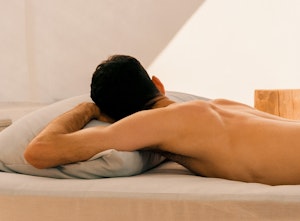
The Truth About Cannabis & The REM Cycle
Does weed help or hinder sleep quality? Let's find out.
What’s your nighttime routine like? If it involves cannabis, this may be something you want to consider.
While cannabis can help us fall asleep, it might hinder our overall sleep quality. Sad but true, the reason you may experience lethargy the following morning is a result of poor-quality REM sleep. If we continue lacking quality REM sleep, one neuroscientist believes that our dreams will eventually spill over into the waking world and cause delirium.
But is it true, and how does that work? Read on to learn more about how cannabis affects the REM cycle during sleep.
Cannabis & The REM Cycle
Cannabis makes us tired. This is a known fact, and our industry has designed specific products geared toward insomniacs and those with other sleep conditions.
Although these products work to help us fall asleep, the overall quality of your sleep might not be the best. Ever wondered why you wake up feeling lethargic after smoking weed before bed? That’s because you’re not experiencing quality REM sleep.
REM stands for rapid eye movement and is a phase of sleep where we experience dreaming, and it’s also essential for helping us build and form memories in our waking life.
Various studies have proven that cannabis decreases REM sleep. Scientists have yet to pinpoint how exactly cannabis interferes with REM sleep, but after analyzing groups of stoners and their sleep trends versus non-smokers, the evidence was loud and clear.
Cannabis users often report having fewer dreams as a result. Interstingly, alcoholics experience something similar, which we touch on below.
What Happens To Your Dreams If You Quit Cannabis?
Joe Rogan sat down with neuroscientist Matthew Walker on an episode of The Joe Rogan Experience, where they discussed the effect of cannabis and alcohol on REM sleep. From what we’ve learned above, cannabis can block REM sleep, which explains the lack of dreams in stoners.
Interestingly, when we don’t get enough REM sleep, our brains log how much we’re missing. Walker says that our brains start “to develop an increased appetite and hunger for dream sleep.” So, when we decide to stop using cannabis or alcohol, Walker says we experience a phenomenon known as the REM sleep rebound effect.
This means the brain acknowledges that we’re getting quality REM sleep but also tries to retrieve the REM sleep we lost over the period of using cannabis or alcohol. The result? Wildly vivid dreams.
However, that’s not all. Walker also explained how we could potentially experience delirium after not having REM sleep for so long. Mind you, the particular studies he’s referencing were based on alcoholics. But the overall effect is worth noting, considering it may produce similar symptoms in daily cannabis users.
What’s called Delirium Trems (DT) occurs when an alcoholic’s REM sleep has been blocked for so long, and the pressure of those dreams has built up that it “actually just spills over into wakefulness,” says Walker. Basically, you dream while you’re awake, which causes delirium.
Again, Walker is referencing alcoholics, but considering the effect cannabis has on REM sleep, it may be food for thought.
Herb Recommended Products:
READ MORE










